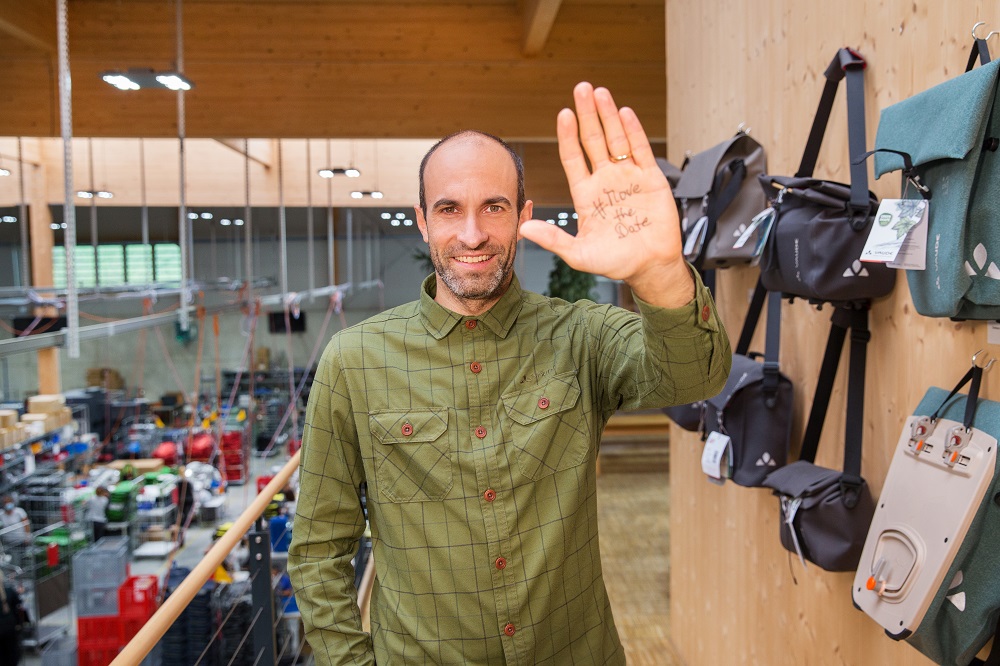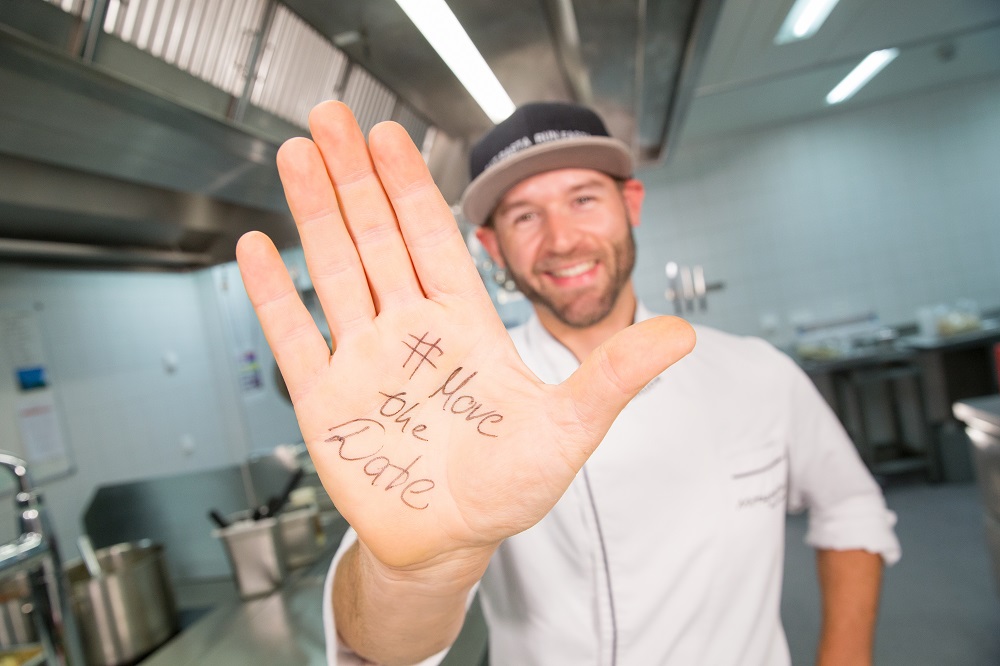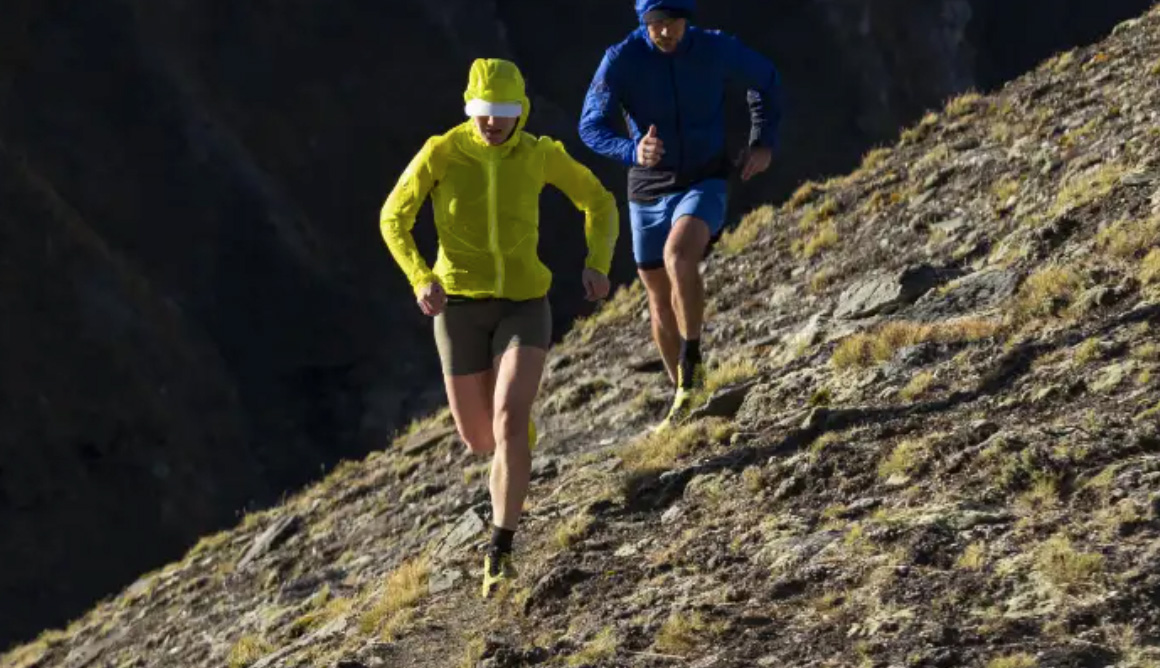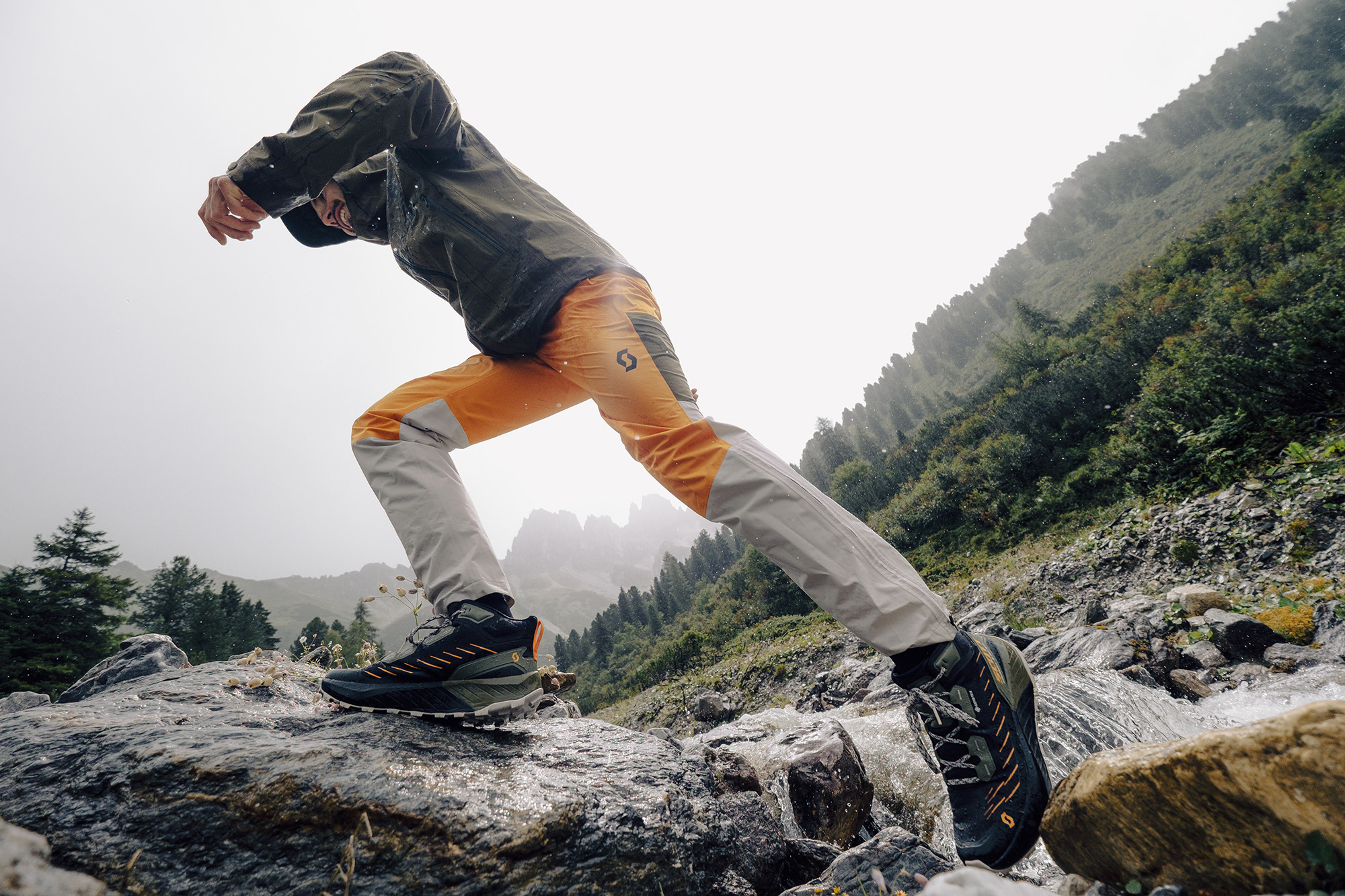Vaude #Move the Date of the Earth Overshoot Day
Earth Overshoot Day is the day when, according to the Global Footprint Network, humanity’s demand for ecological resources and services in a given year exceeds what the Earth can regenerate in that year. So, to date, we are consuming more natural resources than the Earth can provide. Each year this day falls earlier because we humans are living on credit instead of using natural resources in a conscious and sustainable way.

The shocking images and news of the disastrous floods in the Eifel, North Rhine-Westphalia and Bavaria continue to resonate. They have once again heightened our awareness that climate change is not just a vision of the future, but has already begun long ago – that we can no longer afford to continue our wait-and-see attitude, but must act now to protect the earth’s climate. The global climate crisis is non-negotiable. #Move the Date: we must do everything we can to delay the date as much as possible.
At Vaude, we have already decided to reduce our carbon footprint and conserve natural resources. We want to take responsibility for ensuring that our children can enjoy nature in the future. How exactly are we doing this at Vaude? That’s what we want to share with you here, providing some inspiration along the way.
How can we succeed in reducing our global ecological footprint? Experts like Greenpeace’s Jürgen Knirsch recommend 5 guidelines to make it happen.
To celebrate Earth Overshoot Day, we invited five representative Vaude employees to talk about what we’re doing to reduce our ecological footprint.
1) Eat less meat and more vegetables (and reduce food waste in general)
Jackfruit kebabs? No problem! As of the beginning of July 2021, Vaude’s organic cafeteria is completely vegetarian or vegan. Chef Rainer Seibold has always sourced his ingredients regionally, organically and fairly – and was instrumental in our transition to a purely vegetarian or vegan menu. “I myself have been vegan since 2019. I want to share my passion and I’m convinced we can make a lot more money with our new cuisine,” says the 33-year-old. Specifically, this means “a higher degree of freshness, quality, food diversity, environmental protection, social justice and Vaude spirit!”
He easily won over Vaude’s management. “At Vaude, we take responsibility for people and the planet. We take ecological and social factors into account in everything we do. We are breaking new ground in many areas and would like to give our canteen a chance as well,” explains Vaude CEO Antje von Dewitz.
A few weeks have passed to test the reception of the new menu. Mediterranean bowl with quinoa and hummus, mung bean curry with sweet potato, spinach and jasmine rice or simply the local specialty, Käs’spätzle with braised onions and side salad, all look very promising. “In the end, it just has to taste good, and I’m sure it does,” says Rainer Seibold with satisfaction.
2) Live modestly and keep our energy consumption low
Living modestly and keeping our energy consumption low means more than just living. It also includes how we construct our buildings, how we consume energy and invent new technologies to reduce emissions as much as possible. Torsten Kamp is responsible for maintenance and all resource consumption issues at Vaude. “We must finally stop climate change,” he says with conviction.
Torsten Kamp is proud that the Vaude company headquarters in Tettnang and the Manufaktur production facility have been climate neutral since 2012. Energy efficiency played a major role in the modernization of the company’s headquarters in 2016. Thanks to improved insulation, green roofs, underfloor heating, wood construction and intelligent lighting, the buildings now have a very high standard of energy efficiency.
The company’s photovoltaic system on the roof provides 600,000 kilowatt hours of electricity per year, heating has been provided by biogas since 2013, rainwater is used to flush toilets, and even the lighting in 90% of the buildings has been fully converted to low energy. Energy LED. “We control our lighting with presence and motion sensors in our offices,” reports Torsten Kamp. Vaude offsets emissions that cannot be avoided with Myclimate, which finances projects that conserve emissions to the same extent that Vaude produces them.
Vaude has now set itself the goal of producing all of its products worldwide in a climate-neutral way in the future. “A consistently sustainable and climate-neutral business is the only sensible way forward for our future.” Not only Vaude CEO Antje von Dewitz but also Torsten Kamp are convinced of this.
3) Fly as little as possible
Fewer flights simply means taking more vacations at home. And Rafael Erath is one of Vaude’s product managers who makes sure the necessary equipment is available. Bike bags are currently more in demand than ever. “We are experiencing a real bike boom,” the 37-year-old tells us. More and more people are discovering bike rides at home on their own, instead of spending hours on planes abroad. “Certainly the pandemic has also played a role. Many are choosing to enjoy leisure time nearby.” Rafael Erath also spends a lot of time with his family biking, exploring the Lake Constance region on his doorstep. Sometimes less is really more.
Vaude is also committed to reducing climate-damaging emissions as much as possible in the production of its products. By 2024, at least 90 percent of all Vaude products should have a bio-based or recycled material content of more than 50 percent. The use of renewable raw materials or recycled materials conserves fossil resources and significantly reduces CO2 emissions in the production of materials – another step towards climate neutrality.
The demand for sustainably produced gear is growing exponentially. Vaude is constantly developing new solutions to easily and securely attach your bike bag while preserving resources. “Starting this October, the ReCycle bike bag series will be available, our first made from fully recycled core materials,” Rafael Erath is pleased to announce. Plastic packaging or multilayer films from the German yellow bag recycling program are reused for this purpose. “This is innovative, forward-looking and also climate-friendly,” says the Vaude product manager.
4) Drive less, pedal more
The diesel scandal, smog alerts, endless traffic jams: mobility is responsible for a large share of emissions in our globalized world. Vaude is taking a close look at the challenges of its corporate mobility policies, including mobility guidelines for all business trips, conversion of company cars to electric vehicles with 100% green electricity, incentives for green commuting to work such as JobRad, an e-bike rental service, front row parking for carpooling, a mobility lottery or the Bähnle bus.
Gernot Moser, commercial director of Vaude’s Bike Division, is a big fan of the company’s mobility concept. “When it comes to promoting cycling at Vaude, what I appreciate most is the bike repair shop and the shower facilities at work,” Moser says. He himself rides his bike to work almost every day, covering about 4,000 kilometers a year. In total, Vaude employees cycle more than 80,000 kilometers per year, equivalent to more than 2 times around the world. “Overall, we have already significantly reduced climate-damaging emissions. But we are still far from reaching our target: by 2024, we want to reduce emissions from employee mobility by another 25 percent,” adds Hilke Patzwall, Head of CSR at Vaude.
5) Call on the state to regulate laws so that human rights and environmental protection are on the agenda with binding agreements
For Vaude CEO Antje von Dewitz, taking a stand is a given. She wants to take responsibility on multiple levels. She and the entire Vaude team are committed to creating new political framework conditions so that the industry can implement climate-friendly technologies and business models and remain competitive in the process. “An important prerequisite of this issue is to recognize that, as a company in the global textile industry, we are part of the problem of pollution and global warming. That’s why I see it as my corporate responsibility to also develop solutions to these problems and to ensure that our economic impact does as little harm as possible to people and the planet,” he says.
Vaude and Antje von Dewitz are also actively involved in politics and are calling for stricter legal requirements for corporate climate and environmental protection. Vaude supports global climate protection movements such as Fridays for Future and Scientists for Future and is involved in the Entrepreneurs For Future initiative.
Alongside German Development Minister Gerd Müller, Antje von Dewitz campaigned for a supply chain law that obliges companies to fulfill their responsibilities throughout the global supply chain. Vaude has also been involved in the introduction of the Grüner Knopf seal from the beginning as a founding member of the Partnership for Sustainable Textiles, working to make global textile production more environmentally friendly and equitable. Today, 90% of the Vaude Collection meets the strict criteria of the Grüner Knopf.
Since 2012, Vaude has been preparing an Economic Balance Sheet for the Common Good, which – in a nutshell – assesses a company’s success according to basic democratic values and what serves the good of people and the environment. Antje von Dewitz is convinced that solution-oriented and sustainable business is the right way to survive in times of climate change and global challenges, and that responsible corporate action is also becoming increasingly important to consumers.
It’s a trend that others are only now discovering for themselves. And Vaude also offers solutions to this problem. With the Academy for Sustainable Business, founded in 2020, Vaude is passing on its many years of experience and knowledge to interested companies and organizations.
“A successful business can also be humane, environmentally friendly and value-oriented in a globalized world. We want to be part of the solution and we are becoming more and more successful at this every year. This gives me strength and hope and always encourages me too,” wrote Antje von Dewitz in her biography, published in 2020.
At Vaude, we are convinced that climate protection is worth striving for – true to the motto “everything is possible, nothing is necessary”. Maybe together we can turn back Earth Overshoot Day 2022.
#Move The Date




